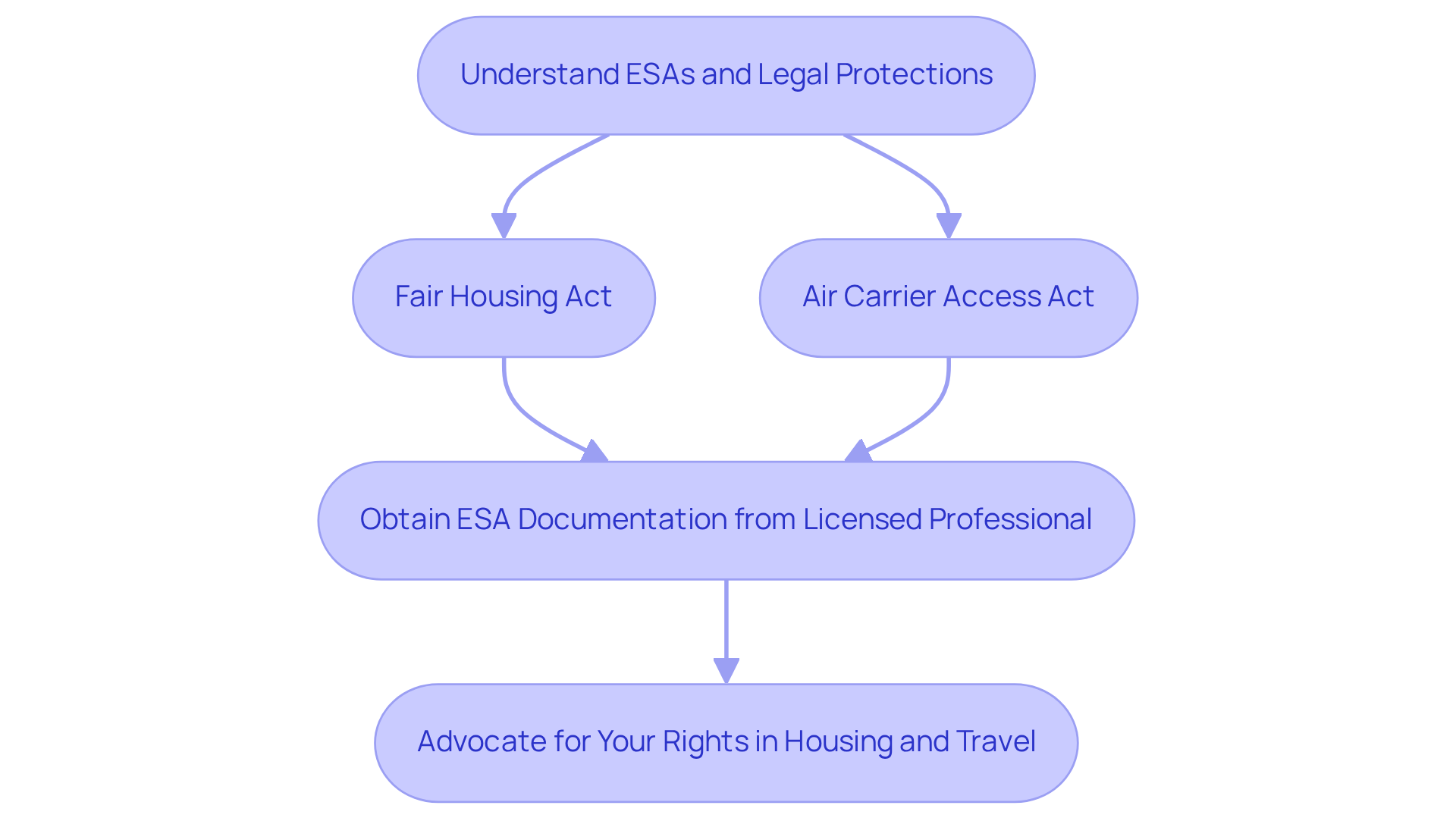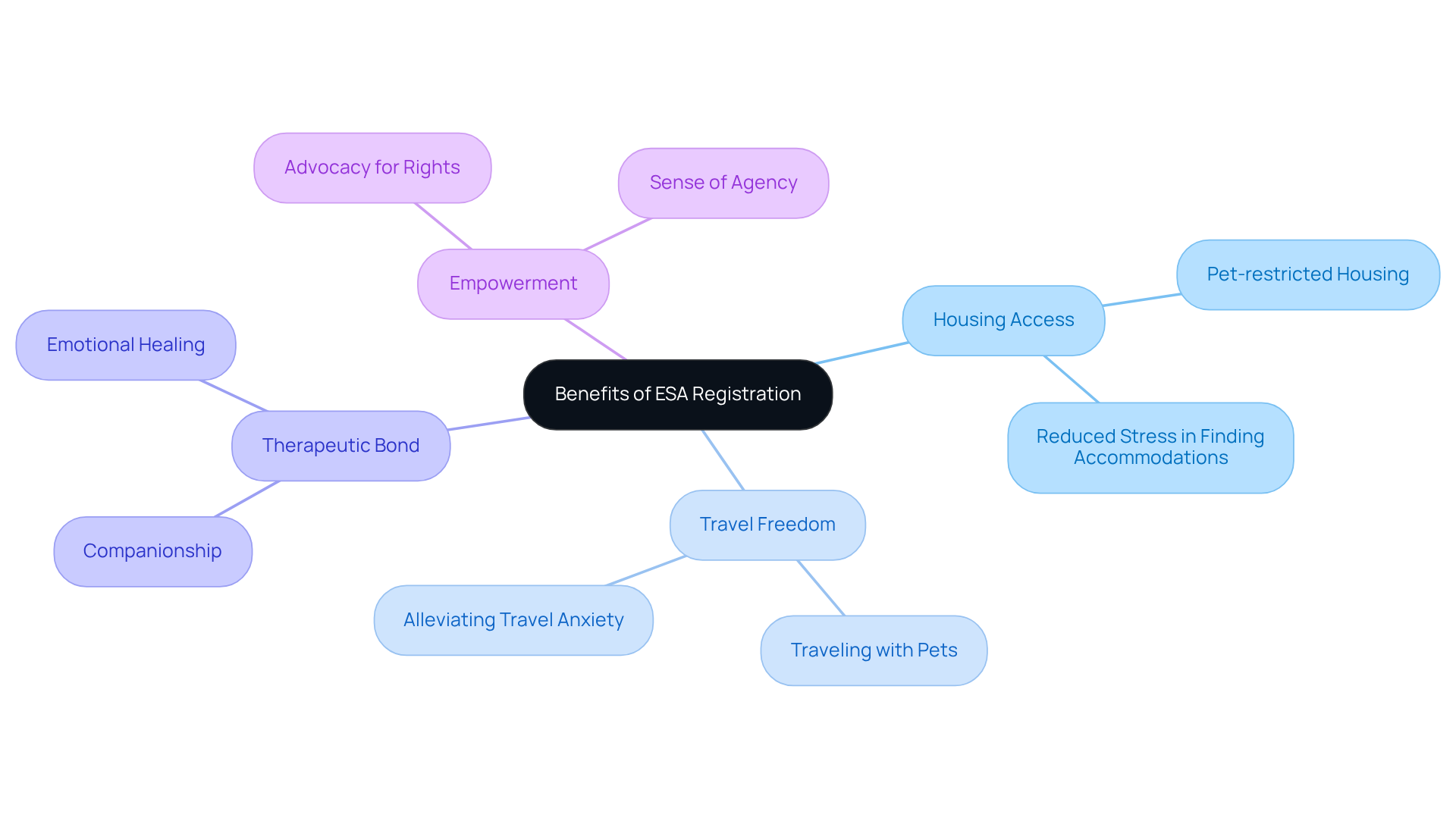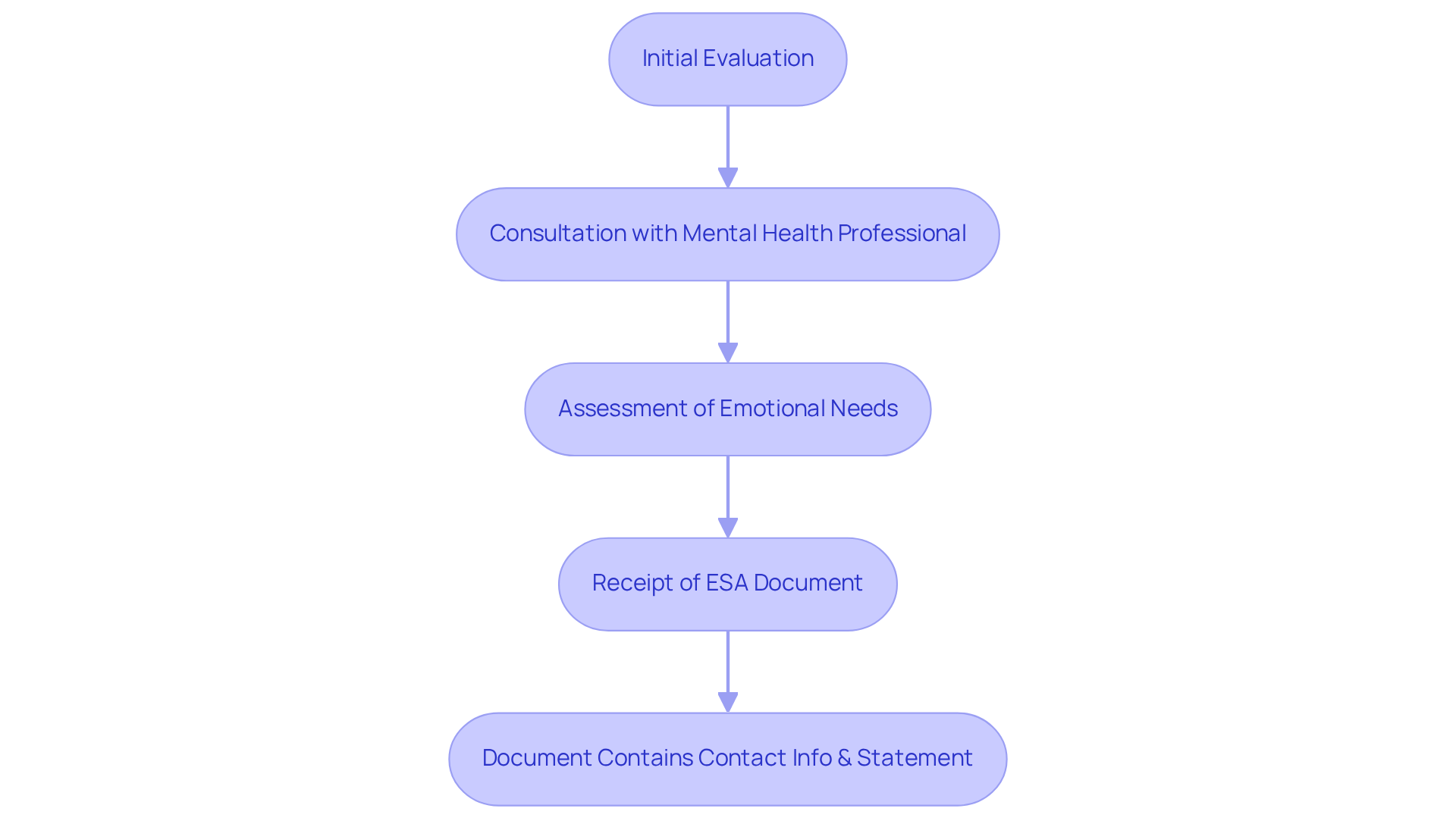

Do ESA Need to Be Registered? Understanding the Essentials
by Lena Park
Last updated: July 29, 2025
Verified and Approved by:
Angela Morris,
MSW, LCSW
Fact Checked

Overview
Emotional Support Animals (ESAs) play a vital role in the lives of many individuals facing emotional challenges. While ESAs do not need to be officially registered, obtaining a valid ESA letter from a licensed mental health professional is essential for accessing the legal protections afforded by the Fair Housing Act and the Air Carrier Access Act. This letter acts as a compassionate solution, advocating for your rights in housing and travel situations.
Imagine the comfort and companionship an ESA can provide during difficult times. These animals offer essential emotional support, helping to alleviate feelings of loneliness and anxiety. However, it’s important to have the proper documentation to ensure that you can fully benefit from the support your ESA offers.
By securing an ESA letter, you not only enhance your therapeutic relationship with your pet but also empower yourself to navigate the challenges of housing and travel with confidence. Remember, you are not alone in this journey; the support available to you is just a step away. Take that step, and let your ESA be a source of comfort and healing in your life.
Introduction
Emotional Support Animals (ESAs) play a vital role in enhancing the well-being of individuals grappling with mental health issues. They offer companionship and comfort that can truly be life-changing. Yet, many potential ESA owners find themselves confused and uncertain about the need for registration.
This article explores the essential aspects of ESA registration, including:
- The legal requirements
- Benefits
- The process of obtaining an ESA letter
What challenges do individuals face in navigating this complex landscape? Understanding these regulations can empower them on their journey toward emotional resilience, providing the support they deserve.
Define Emotional Support Animals (ESAs)
Emotional Support Animals (ESAs) are beloved pets that provide comfort and assistance to individuals navigating emotional or psychological challenges. While service animals are trained to perform specific tasks for those with disabilities, the question of whether do ESAs need to be registered arises since ESAs do not require specialized training. Their primary purpose is to offer companionship and help alleviate the symptoms of mental health conditions such as anxiety, depression, and PTSD. The bond between a person and their ESA can profoundly enhance emotional well-being, making these animals invaluable for many seeking therapeutic support.
For those facing the weight of emotional struggles, the presence of an ESA can be a source of solace and connection. Imagine feeling the warmth of a furry friend who understands your pain without judgment. This companionship can create a safe space for healing, allowing individuals to navigate their feelings with greater ease. The comfort provided by an ESA can truly transform lives, offering a gentle reminder that they are not alone in their journey.
If you or someone you know is battling mental health issues, consider the potential of an ESA to provide the support needed. An ESA letter raises the question of whether do ESAs need to be registered as a compassionate step towards embracing this nurturing relationship. It serves as a formal recognition of the bond between an individual and their ESA, paving the way for enhanced emotional support.
Ultimately, the connection with an ESA can be a beacon of hope, illuminating the path toward emotional resilience. Remember, you are not alone, and there are supportive solutions available to help you through your struggles.
Explore the Legal Requirements for ESA Registration
Navigating the world of Emotional Support Animals (ESAs) can be challenging, especially when it comes to understanding legal requirements. Many individuals facing mental health struggles may feel overwhelmed by whether ESAs do not need to be registered or certified. The Fair Housing Act and the Air Carrier Access Act are designed to protect those with ESAs, allowing them to live and travel with their beloved animals without fear of discrimination.
However, to truly benefit from these protections, it’s crucial to obtain a valid ESA document from a licensed mental health professional. This document serves as vital proof of your need for emotional support, empowering you to advocate for your rights in housing and travel situations.
Unfortunately, misleading services often take advantage of the confusion about whether ESAs do not need to be registered, which can leave potential ESA owners feeling lost and frustrated. Remember, you are not alone in this journey, and there is support available to help you navigate these complexities.

Understand the Benefits of ESA Registration
For individuals seeking emotional support from their beloved pets, acquiring an ESA document can be a transformative step. Many face the daunting challenge of navigating housing restrictions and travel limitations, which can exacerbate feelings of stress and anxiety. By validating the necessity for an Emotional Support Animal, this documentation opens doors to pet-restricted housing and allows for travel alongside their furry companions. Imagine the relief of knowing you can bring your pet with you, alleviating the worries that often accompany finding suitable accommodations.
Moreover, possessing an ESA document deepens the understanding of the therapeutic bond between a person and their animal. It reinforces the emotional support that pets provide, offering a sense of companionship that can be profoundly healing. This connection not only enhances well-being but also empowers individuals to advocate for their rights under relevant laws, fostering a sense of agency in their journey towards mental health.
In this way, an ESA letter serves not just as a piece of paper, but as a compassionate solution to the challenges faced by those with mental health issues. It stands as a testament to the love and support that animals can offer, reminding us all of the importance of these bonds in our lives.

Outline the Process for Obtaining an ESA Letter
The journey to obtaining an ESA document often begins with a brief evaluation to determine eligibility. If you are seeking an ESA document, it’s important to connect with a licensed mental health professional who can assess your emotional needs. During this supportive consultation, the professional will take the time to understand your mental health history and discuss the potential benefits of having an ESA in your life. If deemed suitable, the specialist will provide you with an ESA document, typically available within 24 hours. This letter will include the professional’s contact information, a heartfelt statement of your need for an ESA, and confirmation of your qualifying mental health condition.
At Wellness Wag, we strive to streamline this process, ensuring you receive timely support while adhering to all legal requirements. Remember, you are not alone in this journey; compassionate assistance is available to help you navigate your emotional landscape.

Conclusion
Emotional Support Animals (ESAs) play a vital role in enhancing the emotional well-being of those grappling with mental health challenges. Many individuals face significant struggles, often feeling isolated or overwhelmed. In these moments, the companionship of an ESA can provide invaluable support and comfort. Unlike service animals, ESAs do not require formal training, yet their presence can be profoundly healing. It is essential to understand the nuances of ESA registration and the legal protections that accompany it for those seeking to benefit from these beloved pets.
Obtaining a valid ESA letter from a licensed mental health professional is a crucial step. This letter serves as proof of the need for emotional support, facilitating access to pet-restricted housing and travel. It empowers individuals to advocate for their rights under laws such as the Fair Housing Act and the Air Carrier Access Act. The process of acquiring this letter is straightforward, offering a clear pathway for those in need of emotional support to navigate the complexities of legal requirements.
Ultimately, the significance of ESAs extends beyond mere companionship; they embody a source of hope and resilience for many. By recognizing the benefits of ESA registration, individuals can embrace the support these animals offer. This connection can lead to improved mental health and a greater sense of belonging. It is crucial to take the necessary steps to secure an ESA letter, as this not only validates the bond shared with an animal but also opens doors to a more supportive and accommodating environment.
Reflect on how an ESA could positively impact your life. The journey toward emotional wellness is often challenging, but with the right support, it can become more manageable. You are not alone, and there are compassionate solutions available to help you navigate this path.
Frequently Asked Questions
What are Emotional Support Animals (ESAs)?
Emotional Support Animals (ESAs) are pets that provide comfort and assistance to individuals dealing with emotional or psychological challenges, such as anxiety, depression, and PTSD.
How do ESAs differ from service animals?
Unlike service animals, which are trained to perform specific tasks for individuals with disabilities, ESAs do not require specialized training. Their primary role is to offer companionship and emotional support.
Do ESAs need to be registered?
ESAs do not require registration in the same way service animals do; however, obtaining an ESA letter can serve as formal recognition of the bond between an individual and their ESA.
What benefits do ESAs provide to individuals facing emotional struggles?
The presence of an ESA can provide solace and connection, helping individuals navigate their feelings with greater ease and enhancing their emotional well-being.
Can an ESA transform a person’s life?
Yes, the companionship offered by an ESA can significantly transform lives by providing comfort and reminding individuals that they are not alone in their journey towards healing.
How can someone obtain an ESA letter?
An ESA letter can be obtained through a licensed mental health professional who recognizes the individual’s need for emotional support from their pet.
Certify Your Emotional Support Animal Today

Why You Can Rely on Us?
At Wellness Wag, we believe your pet deserves care rooted in both science and compassion. Each article is carefully researched, written in clear language for pet owners, and then reviewed by qualified professionals to ensure the information is evidence-based, current, and practical for real-life care. Our goal is to help you feel confident in making informed decisions about your pet’s health and well-being.
Reviewed by
Angela Morris, MSW, LCSW
Angela is a licensed clinical social worker with 20 years of experience in patient advocacy and community mental health. She has assisted numerous clients with ESA evaluations and brings a deep understanding of disability accommodations, ensuring that all information is accurate, supportive, and practical.

Written by :
Lena Park
Last Updated :
July 29, 2025












